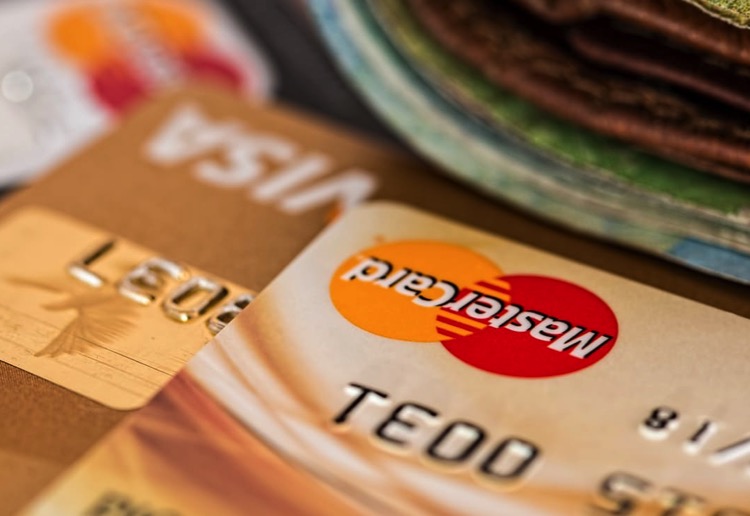I don’t know about you, but I have been dreaming of having financial independence for years!
You know the one that pops into your head when you are thinking about winning the lotto? The problem with dreaming was that it never got me anywhere. In fact, at one stage in my life, I even felt like I was going backwards. This was around the time I had become a single mum. Even though I was building my career, which meant a better salary every year or so, but my bills were still constantly late.
This caused me so much pain that I started thinking about my ‘lotto dream’, and instead of dreaming this time, I considered what is it that is holding me back from bringing this dream to life now, apart from the fact that I was broke!
Get your mindset right
This is so important for your financial independence journey. If your head is not in the right space, it will be a struggle attracting money in your life, let alone creating wealth.
What I found out as I was studying money, is that we create our money beliefs by the age of seven, based on what we see around us. Which means that if you see that it takes hard work to get money, or hear that money is tight, or experience new things coming to you constantly, your habits will relate to these experiences.
So, first things first, check your beliefs about money. What do you identify with? Do you feel it is hard to come by? Do you think there isn’t enough?
If so, you will have to learn to turn these negative programs into a new positive pattern to support your financial independence plans, or you’ll find the journey a challenge.
Get really clear on what you want
As funny as it may seem, many people cannot actually verbalise what it is that they want. It is because we tend to put our needs aside a lot, especially once motherhood hits!
When was the last time you put yourself first? When you can reconnect with you, you can gain clarity in what you want. The more detail you can write down, the better. Think about the lifestyle you want, where you want to live, what you want to do, where do you want your kids to go to school, how many holidays a year do you want to have, what sort of job or business do you want to have?
Think about anything and everything and then add a monetary value to it. It can be in today’s dollars for now. That is a great starting point. It gives you an idea how much money you need to create for your financial independence.
Create a plan to get there
Now that you know what you want to achieve, you can create goals, targets and milestones along the way.
Achieving financial independence won’t happen overnight. So, you will have to take into consideration where you are at right now. Do you have debt you need to reduce right now? Do you have bad spending habits that you ill need to address? Do you have some assets that are draining the money pot that need to be addressed?
Then consider where you want to head, will that mean you need to increase your income, introduce another sort of income, learn to invest, create an investment plan, set up savings plans?
There will always be things along the way that will help you tweak the exact steps you need. You just need to select a direction for now.
Commit to your goal
This may mean some challenges, but your want to achieving your goals need to be stronger than any distractions may be. Without commitment to your financial independence, you will not get results. It will become the one step forward, two step back shuffle.
Personally, I found that wanting to create financial independence to be able to provide a better life to my children was an amazing motivator. What is your reason that will drive you forward?
Spend less than you earn and invest the difference
This is rule number one to creating financial independence. I am pretty sure it is common sense. The challenging part is investing it in the right assets.
I don’t necessarily mean whether you choose between shares or property. Right assets are the ones that you can understand and create a passive income. There is no point in investing in something that stresses you to the max! The health risks will outweigh the benefits. Also, if you don’t understand how it makes money, I would not go near it.
When you are investing, invest for the longer term. That is generally where the real growth is.
Get a team
Creating financial independence is a team sport! Your accountant can help you set your ventures up in the most tax effective ways. Your lawyers can help you protect your assets. Your brokers can give you assistance with your finances. Your planners can help you create your projections for growth, and the list goes on.
Find whoever is specialising in the asset classes you intend to use and work with them.
Get a mentor to keep you on track
Let’s face it, if we need to make things happen for ourselves, they tend to go into a too hard basket. When you have a mentor or coach, they can help you stay accountable, focused and on track to achieving your financial goals, as well as guide you to take the right actions for the outcome you desire.
Keep reviewing your goals
Whatever you measure gets improved. By continuing to check your progress, you can see what is working, where you are at and then adjust the plans to move your forward with better impact.
Creating financial independence has it’s challenges, but with a positive mindset, clear plan, strong commitment and focused action you too can achieve it!




















-

-
-
BellaB said
- 17 Jul 2025
-

-
-
mom486197 said
- 05 Feb 2024
-

-
-
mom93821 said
- 02 Jul 2018
-

-
-
mom94125 said
- 28 Sep 2017
-

-
-
mom70876 said
- 23 Apr 2017
-

-
-
mom101628 said
- 22 Feb 2017
-

-
-
mom101628 said
- 22 Feb 2017
-

-
-
rovermum said
- 22 Feb 2017
-

-
-
The Disorganised Mumma said
- 21 Feb 2017
-

-
-
ella12 said
- 21 Feb 2017
-

-
-
june11 said
- 18 Feb 2017
-

-
-
Aida Moroccan said
- 07 Feb 2017
-

-
-
mom101628 said
- 03 Feb 2017
-

-
-
mom112217 said
- 02 Feb 2017
-

-
-
mom160421 said
- 02 Feb 2017
Post a comment4:04 pm
12:59 pm
5:40 am
11:12 pm
9:54 pm
10:27 pm
10:23 pm
10:34 am
4:36 pm
-

-
-
Orsolya replied
- 25 Feb 2017 , 10:34 pm
-

-
-
mom93821 replied
- 03 Jul 2018 , 5:00 am
Reply3:48 pm
8:11 pm
12:49 am
11:25 pm
2:57 pm
-

-
-
Orsolya replied
- 02 Feb 2017 , 8:53 pm
Reply2:48 pm
-

-
-
Orsolya replied
- 02 Feb 2017 , 8:58 pm
ReplyTo post a review/comment please join us or login so we can allocate your points.